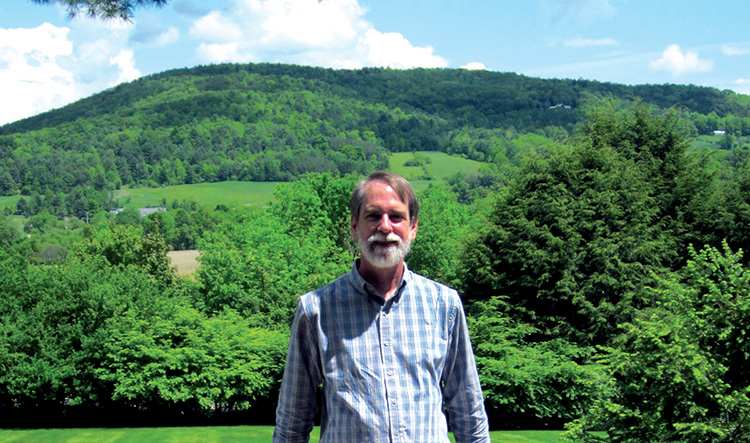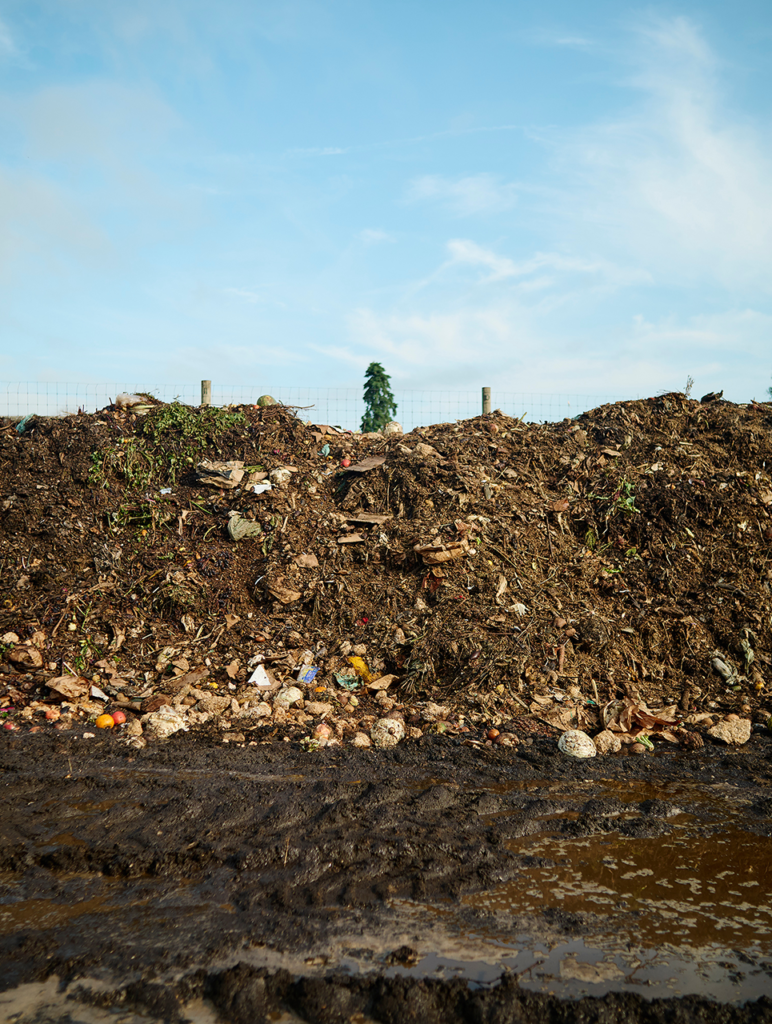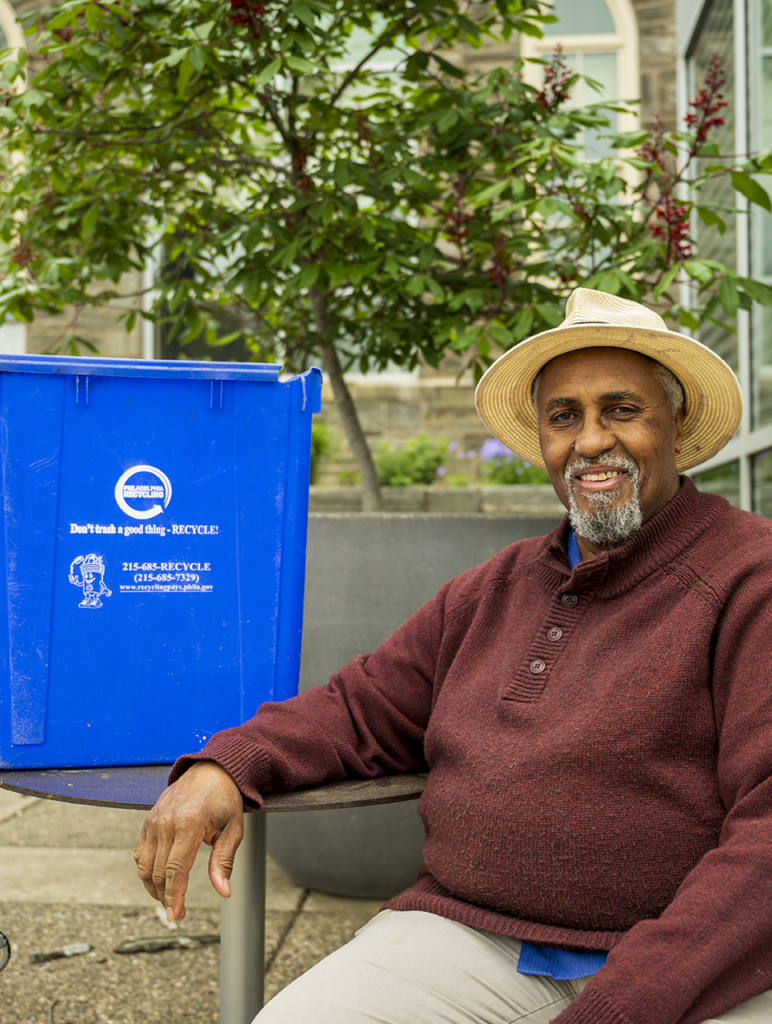Go Tell it on the Mountain
interview by Heather Shayne Blakeslee
America’s early European settlers brought with them definitive ideas on relating to the new land—including that it was theirs for the taking. While they created the colonies and started congregations, author Mark Stoll argues that they also built the beginnings of our country’s environmental movement.
In your book Inherit the Holy Mountain, you talk about three main areas of focus when it came to the early religious settlers’ relationship to the land: forests, parks and farms.
MS: Conservation in the 19th century—conservation, forestry, parks, mines—was all dominated by these new England Congregationalists… We think of Puritans as hanging witches, persecuting Quakers; they got really bad press. Their purpose when they came over here was to create this kind of godly community where nobody was poor, nobody was suppressed, everybody was this community that worked together.
We usually don’t think of parks as very spiritual, right? We think of them an opportunity for the individual and go out there and exploit nature in an Emersonian way. But they had this social purpose from the very beginning to be for the community… for poor people as well as wealthy people so that wealthy people didn’t end up with the best places to go and relax while poor people ended up stuck in the cities, the grime and the dirt.
The farms were tied to not only the community, to make sure that you and your land was useful to the community and that you were taking care of your land… You take care of your land in such a way that you can hand it off to different generations in as good or better condition.
The “forest” came out of that. Originally, forestry was how you, as a farm, took care of your wood plot; and, again, you wanted to keep it in a condition where future generations would have wood, and not cut it down for profit.
All of this had a religious component, but at the same time it had a social justice angle that we don’t usually think of when we think conservation, parks and farms… We don’t usually think of contemporary environmentalism as part of a broader social assessment. That, of course, connects to the Pope and his encyclical… how interesting [it is] to bring us back to forgotten roots of environmentalism [and] this vision of a better society.
Thinking about how the Puritans approached farming, in trying to make things as efficient as possible, has that influenced the current pandemic of factory farming in some way?
MS: Absolutely… you could trace a direct line. These people would probably be horrified by factory farms, but their goal was production. They were thinking “We are going to help our farmer” by helping him increase production and “We are helping society” by making food more plentiful. So, it’s all idealistic, but…you just follow it to its logical conclusion to get what we have today. There is nothing that bothers a Puritan more than waste.
The study of natural history—biology, botany and the like—was an outgrowth of Puritan ideals and interests. Philadelphia was part of a nexus of scientific inquiry.
MS: Most of it lives in the idea that God gave mankind two ways to know him. One was…knowledge of religion and divine attitudes in the Bible. But the problem with that was, especially before the Bible was translated and widely available, it was only for people who could read foreign languages. Christians didn’t think that God would only put knowledge of religion in something that the vast majority of people could have no access to.
The idea was that God also, directly from his hand, created nature so that if you went to study nature you could then find acts of God—his wisdom, his power, his glory—in the natural world.
[Philadelphia] was the biggest city in America at the time of the revolution, by far the biggest city that had this vibrant community there and its mix of interesting people—a lot of Calvinists and a lot of the Quakers. Both of them looking for God’s glory, to study God and his works.
You wrote, “In the 1930s, industrialization, urbanization and immigration made the Puritan heartland nearly unrecognizable. The once powerful authority of congregational ministers dwindled dramatically. Rising mass media, commercialism, and consumerism overwhelmed the power of the pulpits and parents’ ability to perpetuate Puritan values of self-control, selflessness, becoming good, living lives useful to society and leaving the world unimpaired for future generations.” Sounds like the world we are still living in.
MS: That’s one of the real problems of the modern era. Two hundred years ago, what were your sources of values and information? Your family, perhaps. Maybe your school. Certainly your church, which was a center of any community. Probably the most educated person of your community was the minister of the church. Your values tended to come through these conduits. Today, maybe you go to church an hour or two. What you are exposed to constantly is advertisement. Advertising is really propaganda. It’s propaganda for very different ideals.
It’s not those traditional, Puritan values of self-sacrifice and so on—industriousness and being useful to society. All of that stuff doesn’t make anybody money. If you are a consumer, focused on yourself or your own pleasures, you buy stuff. Selfishness, self-centeredness, self-regard—selfies. … Does it make us better people? And do we even worry about becoming better people? … What are you going to do for society? What are you going to do for the world?
In the ’60s and the ’70s, religious institutions began to be seen in opposition to the environmental movement. How did something that was so central to religion become anathema?
MS: You could point to an essay from the 1960s by Lynn White, Jr. … In 1967, the only industrialized countries were in Europe or America, basically the Western world. What he was wondering was why did the Western world—only—develop? At the time, in the 1960s, this was way before China or India or the Third World would get to industrialize… [The West was] flooded with pollution and water pollution, and it seemed like the West was destroying the earth—and nobody else was.
So, what was different about the West? He said Christianity. In the first chapter of Genesis, God gives the world to us, to have dominion over and basically conquer it. Christianity went and replaced paganism; it took all the spirits and the Naiads, the dryads—various gods and goddesses—out of the natural world, and they made it a dead thing … He did see one little glimmer of hope in Christianity in St. Francis. Pope Francis was named for him. [He] suggested that Saint Francis be made the patron said of ecology, which, interestingly enough, is exactly what happened to him about 10 years later.
[The essay] created this idea that Christianity was intrinsically hostile. It sort of shocked the churches. The churches were wondering, “Is this true?” There was a lot of soul searching. It also created amongst many environmentalists—or maybe reinforced what they were thinking already—that they needed to look elsewhere for some sort of environmentally friendly spirituality. They had to go become Buddhist, Taoist or Hindu, or more native than the Native Americans.
This is really when you can take the beginning of this flip. The Evangelical churches… if you looked at what they were saying in 1970s around Earth Day, they seem to be all on board. The ’70s go on, they began to go back and—really pretty quickly around the time—there was Roe vs. Wade and all these other things that really upset the Evangelicals. They began to withdraw from favorable environmental comment and started accusing environmen
talism [of] worshipping the earth and being pagan. There is enough truth to that to make it stick.
You mention to many Evangelicals today about environmentalism and they are going to have a negative reaction. If you mention religion to an environmentalist, you are going to have a negative reaction. One of the things I wanted to do with this book was to say, “Look at your roots. This is coming out of you.” They were entangled from the very beginning.
Dr. Mark Stoll is the author of several books, and is the Director of Environmental Studies at Texas Tech University.









